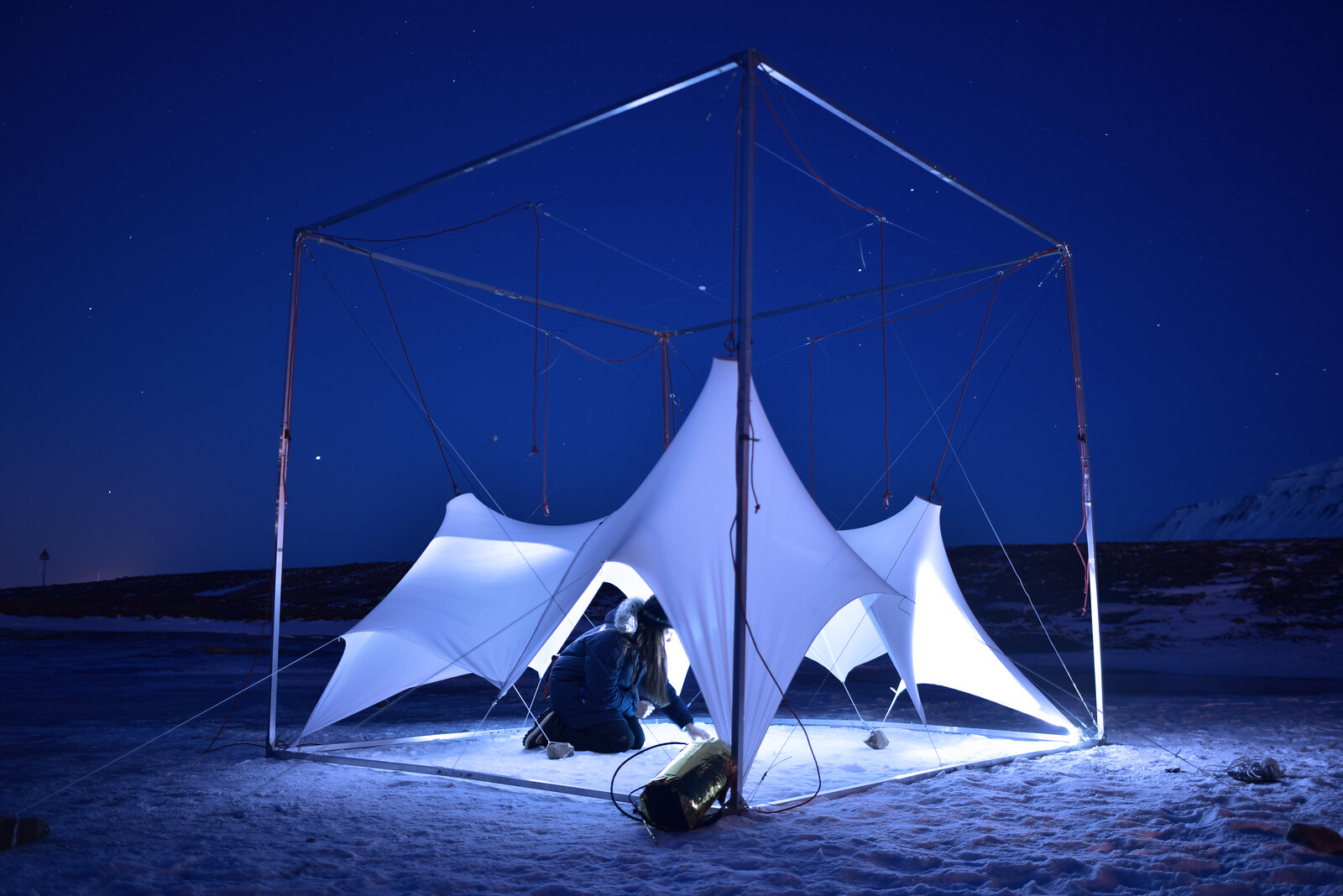Application deadline: March 1, 2023, 6am
Philip De Langes Allé 10
1435 Copenhagen
Denmark
Hours: Monday–Friday 9am–4pm
T +45 41 70 15 00
info@kglakademi.dk
Architecture and extreme environments
Welcome to a program which aims to make a positive impact on our challenged world, through experimentation, artistic exploration and with consideration to site and local culture. Through a site-specific approach, this Master aims to respond to present and future global challenges through research by design, fine-tuned site specific strategies and active fieldwork to remote world locations where 1:1 architectural prototypes are put to the test to inform and innovate building design at home and abroad. The course engages with the 17 United Nations Sustainable Development Goals and was awarded by the UIA the international prize for the most Innovative Architecture Master Programme in 2022.
It is our intention in to investigate the artistic potential of working with technology not only as a pragmatic orientated design parameter, but also as a process charged with proactive possibilities, aesthetic potential and cultural sensibility, from building to detail.
For 2023, the year focus and four week fieldwork will be Jaipur, Rajastan in India, in close collaboration with Dark Matter Labs and Dhun life project in Jaipur.
About the programme
This Master programme pursues to explore the intersection between technology, artistic sensibility, culture and environment. Through a site-specific approach, we aim to respond to present and future global challenges through research by design and direct on-site involvement in the form of active fieldwork to remote world locations where prototypes are put to the test and buildings are designed base on on-site experience.
In close collaboration with local communities, science and manufacturers, this Master programme engages with testing new architectural sustainable approaches, from component to building design, and a considerate position towards designing for people and communities.
We mediate our presence in our environment via design and technology, often disregarding the environmental impact of our design decisions. It is our intention to investigate the design potential in working with technology not only as a performance orientated design parameter, but also as a process charged with aesthetic potential and cultural implications with sustainable aims, from building scale all the way to detail.
Architecture today often abandons site-specific knowledge and local design traditions that have allowed for sustainable and resilient environments. Parallel to this reality, science and technology have a larger vocabulary of approaches and solutions than what is currently applied to building and component design.
The programme offers future architects platforms of collaboration with scientific and technological fields of knowledge as an active part of design, to enrich architecture’s spatial vocabulary and to broaden its performance and sustainability in today’s challenging realities.
There is a strong focus on site-specific design, achieving this through direct engagement and fieldwork to environments which are out of balance. These exceptional scenarios, be it flooding, extreme cold or heat, high pollution and health risk zones, to name a few, are used as test beds for an architectural design to be developed.
This methodology allows for a real-scenario, on-site research by design process that spans from prototypes and building components to large scale building design, in collaboration with local culture, the scientific and technological community and the world of practice and manufacture, both local and global.
In this programme students acquire, not only a site-specific design methodology that allows for an architecture fully informed by local conditions, but also knowledge and solutions, which can be applied to many contemporary contexts, both at home and abroad.
The course starts at the beginning of September until the end of June and the month-long fieldwork is from mid-November to mid-December. The faculty does not cover any costs, but supports students with recommendations and platforms for funding applications.
Lecturers, critics, and collaborators in recent years have included: Peter Cook, Marcos Cruz, Liam Young, Kristoffer Lindhardt Weiss, David Zahle, Aaron Cook, Joost Grootens, United Nations, UNHCR, NASA, Dark Matter Labs, Centre for Cold Climate Research, The Centre for Land Use Interpretation, amongst others.
Faculty
David A. Garcia (Programme Head), Runa Johannessen, Will Lambeth, Otis Sloan Wood and Emanuele Naboni.
Application deadline: March 1, 2023

















